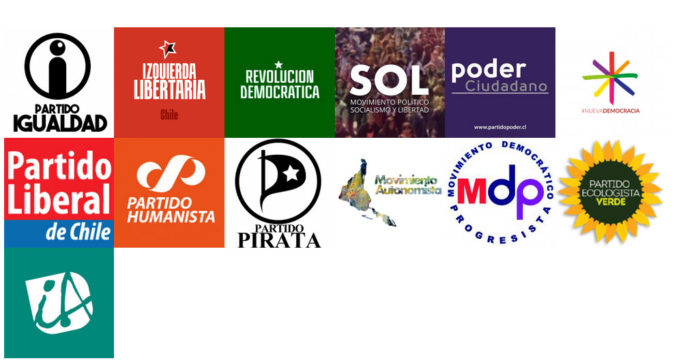28 November 2017
Dear LAB Supporter and Friend,
Elections
Chile: Results in the first round of Chile’s presidential elections, on November 19, confounded all the pollsters. Sebastián Piñera, candidate for the Chile Vamos coalition, universally tipped to win and possibly to gain an absolute majority in the first round, slid to only 36.5%. Alejandro Guillier, standing for Nueva Mayoría, and the intended successor of the incumbent, Michelle Bachelet, obtained a better-than-feared 22%.
But the big shock was the surge of the new left Frente Amplio, whose candidate, Beatriz Sánchez, with 20.7% almost pipped Guillier for a place in the second round. All eyes now on whether, and in exchange for what, Sánchez will urge her supporters to back Guillier in Round Two, due on 17 December. Another sign that the more radical, rather than neo-liberal, left is gaining more traction in our 21
st Century world? (
Read more)
Honduras: Meanwhile, as we write this, Honduras too has been plunged into uncertainty by the results of Sunday 26 November’s presidential election. With 57% of the votes counted, Salvador Nasralla, heading the Opposition Alliance Against the Dictatorship, was on 45.17% with the incumbent, Juan Orlando Hernández trailing on 40.21%.
The Hernández camp are claiming that the predominantly rural make-up of the still uncounted vote will reverse the positions. Some Nasralla supporters, both in the country and abroad, fear that the suspiciously slow count conceals skulduggery at the national election tribunal, allegedly controlled by pro-government nominees. LAB will publish more on this after Thursday, when the final results should be known.
Some realities of Colombia’s peace process
Christian Aid country representative for Colombia, Thomas Mortensen, has an interesting article highlighting some of the difficulties and contradictions of the peace process and warning that ‘this may not be the peace we wanted’.
The omission from the peace accords of a requirement for politicians and public servants to appear before the Special Peace Courts risks allowing impunity to some of those who commissioned paramilitary forces to evict people from land coveted by agribusiness, mining interests and others.
There are fears, too, that the influence of evangelical and conservative religious forces will undermine the promises to women, survivors of the sexual violence which was used routinely during the conflict.
Finally, Attorney General Nestor Humberto Martinez has called for a resumption of the crop eradication programmes which proved so destructive and ineffectual in combating cultivation of coca and other drugs. This will radically undermine the more painstaking crop substitution programmes to which many farmers were at last signing up. (
Read more)
Meanwhile, LAB correspondent Charles Beach has been in Cucutá, on the border with Venezuela – an area, as he explains, where patterns of trade, culture and migration have historically ignored frontiers. Currently, Venezuela’s economic crisis is fuelling both smuggling of petrol and other goods, and a flow of migrants. (
Read more)
A small alternative to agribusiness?
Brazil’s Landless Rural Workers’ movement, the MST, was crucial in mobilising rural people and fighting important battles that helped to bring the PT government under Lula to power in 2003. They are still powerful and active, and promote occupations of dis- or under-used land in many parts of the country (such as the recent one by 300 families in Goiás on 15 October).
With the Bancada Ruralista calling the shots in Temer’s tottering government, the MST is an important promoter of resistance. They continue to defend the farms and co-operatives established under the land reform. Recently they have been trying to establish markets for the produce from these farms and to create a link between rural and urban workers. The latest initiative, a Farmers’ Market in a shop premises, opened in Belo Horizonte, capital of Minas Gerais, on November 25. (
Read more)
A Call to Art
In case you missed this moving three-part series for BBC Radio 4, you can catch
them up on BBC iPlayer Radio. The presenter is Louise Morris, a member of LAB’s Editorial Team.
In Chile, in the first programme, Louise travelled to Quintay, Chile, to interview Amanda Jara, daughter of Chilean folk-singer and theatre director Victor Jara who was murdered by Pinochet’s soldiers shortly after the military coup in 1973.

